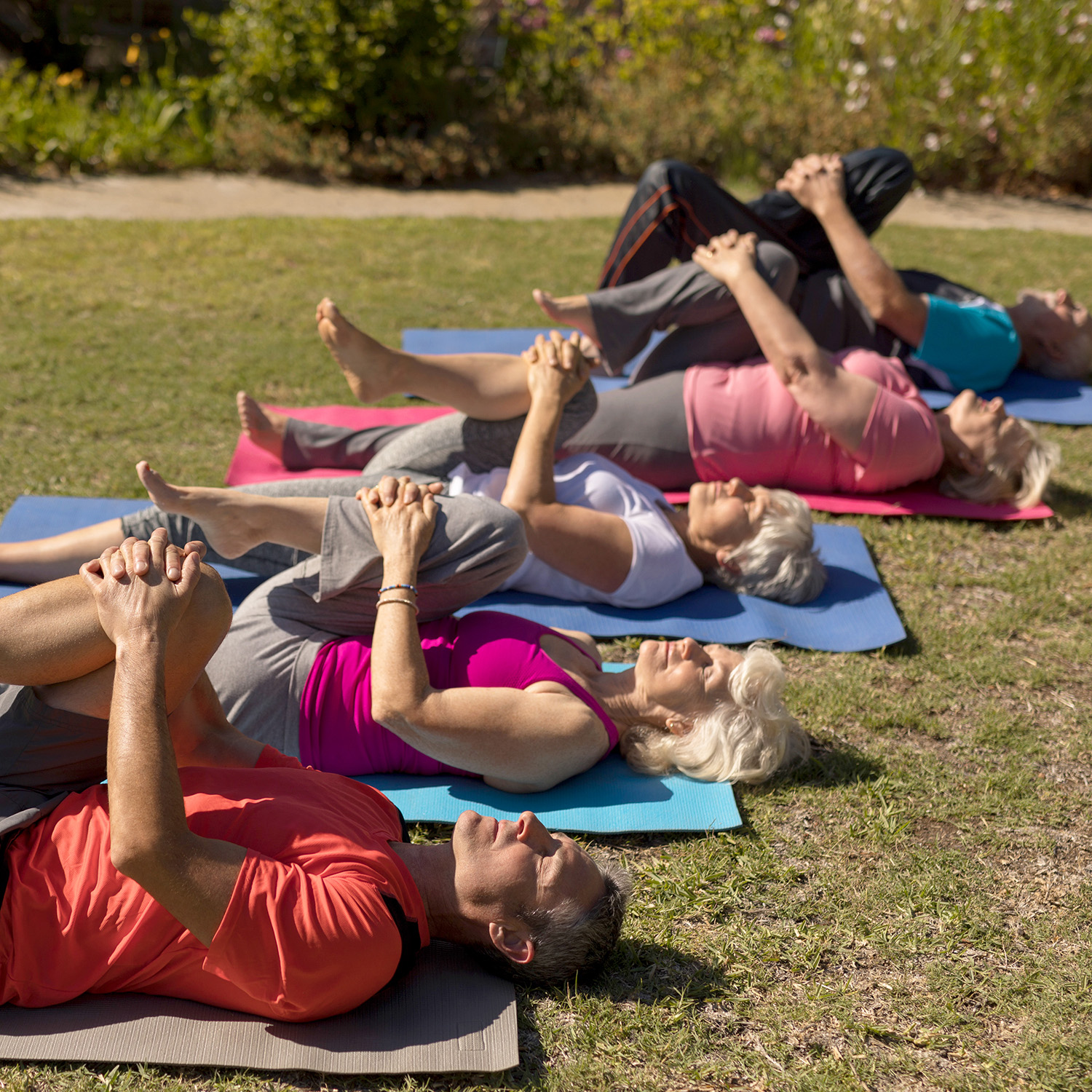Psychological and Physical Practices for Older Adults

Many older adults turn to complementary and integrative health approaches, often as a reflection of a healthy self-empowered approach to well-being. Natural products often sold as dietary supplements are frequently used by many older people for various reasons despite safety concerns or a lack of evidence to support their use. Although there is a widespread public perception that the botanical and traditional agents included in dietary supplements can be viewed as safe, these products can contain pharmacologically active compounds and have associated dangers.
Psychological and physical approaches, including relaxation techniques and meditative exercise forms such as yoga, tai chi, and qigong are being widely used by older Americans, both for fitness and relaxation, and because of perceived health benefits. A number of systematic reviews point to the potential benefit of several psychological and physical approaches for symptom management, particularly for pain.
This issue of the digest provides information on complementary and integrative health approaches for conditions clinically relevant to older adults.
What the Science Says:
Psychological and Physical Practices for Older Adults
Condition and Summary of Current Research
Clinical practice guidelines issued by the American College of Rheumatology strongly recommend aerobic exercise and/or strength training, weight loss (if overweight), tai chi, and a number of pharmacologic and nonpharmacologic modalities for treating osteoarthritis (OA) of the knee, hip, or hand. The guidelines conditionally recommend balance exercises, yoga, acupuncture, and other nondrug approaches such as self-management programs and walking aids, for managing knee OA.
Read more about the research on psychological/physical approaches for osteoarthritis
Research has demonstrated beneficial results of cognitive behavioral therapy for insomnia (CBT-I) for people with chronic insomnia disorder. There is also some evidence suggesting that relaxation therapy may be useful for this condition. There is limited evidence that other complementary health approaches such as yoga may be helpful for people with sleep problems.
Read more about the research on psychological/physical approaches for sleep disorders
Overall, research suggests that some psychological and physical approaches, such as yoga, tai chi, and meditation-based programs may provide some benefit in reducing common menopausal symptoms.
Read more about the research on psychological/physical approaches for menopausal symptoms
There is evidence that tai chi and qigong may reduce the risk of falling in older adults. There is also some evidence that tai chi may improve balance and stability with normal aging and in people with neurodegenerative conditions, including mild-to-moderate Parkinson’s disease and stroke.
Read more about the research on psychological/physical approaches for preventing falls
There is some evidence that suggests psychological and physical exercise programs such as tai chi, qigong, and yoga may have the potential to provide modest enhancements of cognitive function in older adults without cognitive impairment.
Read more about the research on psychological/physical approaches for cognitive function
Clinical Guidelines
- Guidelines for the Non-Surgical Management of Knee Osteoarthritis (OA Research Society International) [5.2 MB PDF]
- Clinical Guideline for the Evaluation and Management of Chronic Insomnia in Adults (PubMed)
- Treatment of Osteoarthritis of the Knee (American Academy of Orthopaedic Surgeons)
Scientific Literature
NCCIH Clinical Digest is a service of the National Center for Complementary and Integrative Health, NIH, DHHS. NCCIH Clinical Digest, a monthly e-newsletter, offers evidence-based information on complementary health approaches, including scientific literature searches, summaries of NCCIH-funded research, fact sheets for patients, and more.
The National Center for Complementary and Integrative Health is dedicated to exploring complementary health products and practices in the context of rigorous science, training complementary health researchers, and disseminating authoritative information to the public and professionals. For additional information, call NCCIH’s Clearinghouse toll-free at 1-888-644-6226, or visit the NCCIH website at nccih.nih.gov. NCCIH is 1 of 27 institutes and centers at the National Institutes of Health, the Federal focal point for medical research in the United States.
Copyright
Content is in the public domain and may be reprinted, except if marked as copyrighted (©). Please credit the National Center for Complementary and Integrative Health as the source. All copyrighted material is the property of its respective owners and may not be reprinted without their permission.